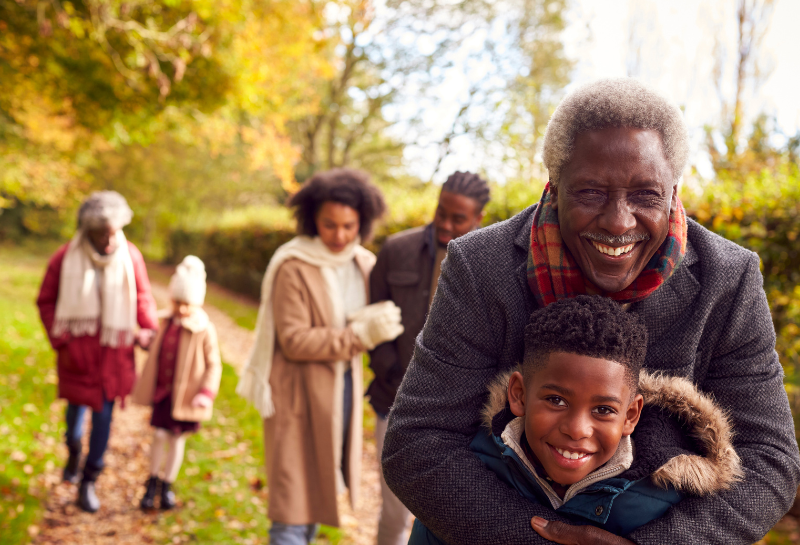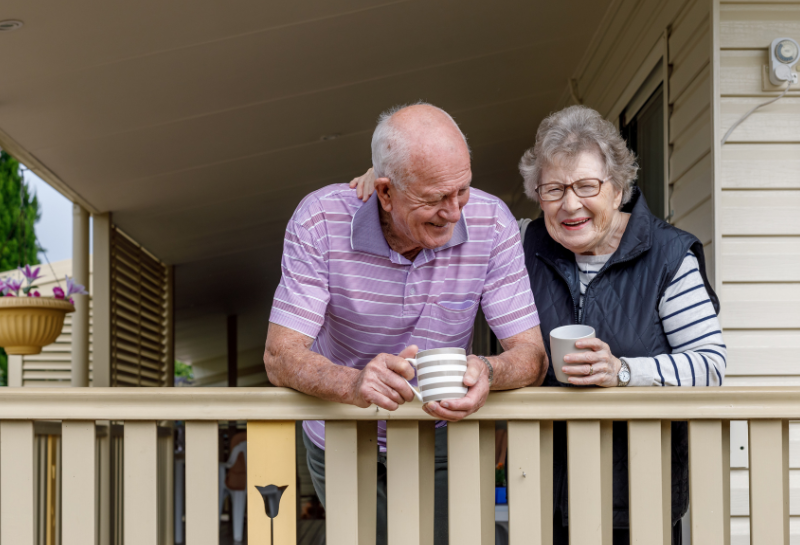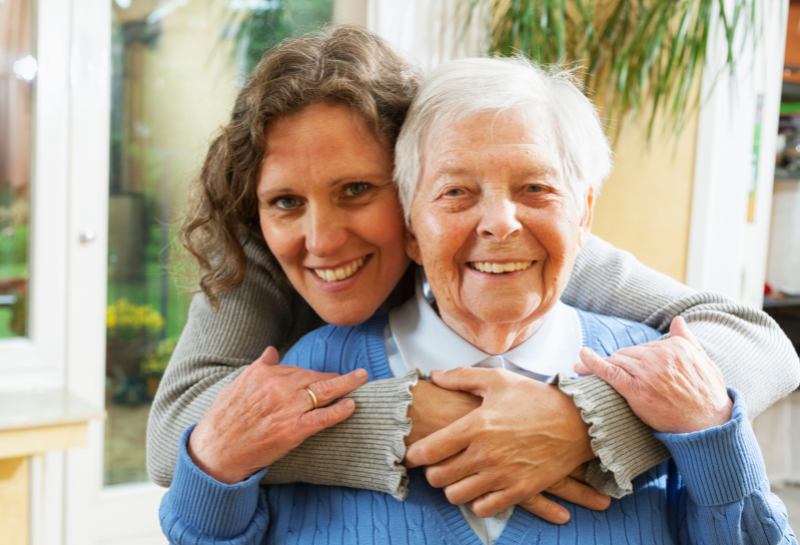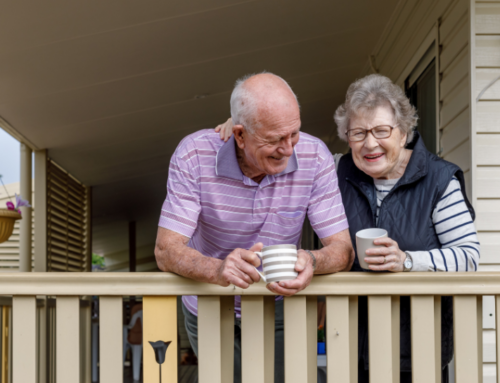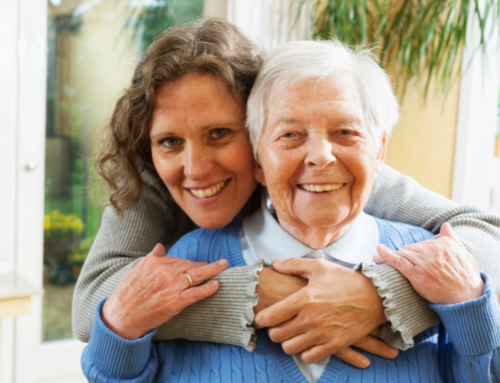Autumn Is Here: Keeping Aging-in-Place Seniors Engaged and Safe as the Temperature Drops
Are you or someone you know caring for an older adult living at home this autumn?
As the temperatures drop and the days become shorter, seniors aging in place may face new challenges in staying engaged and safe. Aging-in-place organizations like DSCC and the dedicated volunteers who provide critical support keep seniors connected to their communities while ensuring their homes remain safe and secure.
The amount of older adults in traditional housing is on the rise. A 2022 study found that in the last 20 years, the proportion of older adults in:
- Traditional housing increased
- Community-based residential facilities remained the same
- Nursing facilities decreased
This article outlines how DSCC and similar non-profits help seniors remain active and engaged throughout the season.
The Importance of Senior Engagement During Autumn
As the weather cools and days shorten, many seniors living alone or aging in place find themselves less mobile and more isolated. They are also more likely to have certain chronic conditions that make it harder to stay warm, such as diabetes, thyroid problems, arthritis, and memory issues. In addition, some medications, including prescription and over-the-counter medicines like cold remedies, can affect body heat.
In addition, this change in season from warm to cold can reduce opportunities for social interaction and outdoor activities, leading to a decline in physical and mental health. Engaging seniors through meaningful activities and providing safety measures is critical to maintaining their well-being during the colder time of year.
DSCC and other aging-in-place organizations play a crucial role by providing programs and volunteers who help seniors stay active and connected to their communities, ensuring they remain physically safe and emotionally supported throughout autumn.
How Aging-in-Place Organizations Keep Seniors Safe and Engaged
As the colder months set in, aging in place and staying indoors can increase the risk of loneliness and disengagement for aging adults.
Aging-in-place organizations are crucial in keeping seniors connected, mentally stimulated, well-nourished, and safe during this time. With the help of volunteers and community programs, they provide essential services that promote well-being and prevent isolation.
Here are some key ways these organizations help seniors remain engaged and supported as temperatures drop:
Prevent Isolation: Dining Programs and Social Gatherings
DSCC offers seniors opportunities for social interaction through a Senior Dine program and community dining. These gatherings encourage seniors to socialize, share meals, and engage in conversations, reducing isolation and fostering a sense of belonging during colder months.
Mental Stimulation: Health and Well-being Programs
DSCC provides educational information and intergenerational activities that keep seniors learning and mentally engaged. These programs help maintain cognitive health, boost mood, and reduce the risk of cognitive decline.
Emotional Support: Friendly Calls and Wellness Check-ins
Volunteers from DSCC make friendly phone calls and Well-Being Checks, offering emotional comfort to seniors and peace of mind for families, knowing their loved ones are feeling good, eating correctly, and that their home environment is safe and secure. These interactions create a connection and provide emotional reassurance, helping seniors feel connected and valued.
Home Safety: Seasonal Modifications and Safety Checks
As part of DSCC’s safety initiatives, the organization provides cost-effective minor home repairs which include modifications such as grab bars, ramps, and safety checks, including window locks, locks, and deadbolts, as well as carbon monoxide and smoke detector checks to prevent accidents. This ensures seniors can safely navigate their homes during the autumn and winter.
*NOTE — One-third of adults 65+ experience a fall each year, and only 10% of homes are estimated to be “aging ready.”
Nutritional Support: Meals on Wheels
DSCC ensures that older adults aging in place during the colder months receive nutritious meals through the Meals on Wheels program. This service guarantees that seniors are well-fed and serves as an additional wellness check.
All services offered by DSCC create a comprehensive support system for older adults aging in place. Addressing social, emotional, physical, and safety needs, these programs help seniors maintain their independence and enhance their quality of life throughout the autumn months.
Each service ensures that seniors receive practical care and experience a sense of connection, security, and community when they might feel increasingly isolated.
Older adults’ home needs grow more complex and critical as autumn approaches. Aging-in-place organizations like DSCC provide essential support that can make the difference between health and well-being and tragedy. They offer seniors services and the emotional connection to keep them engaged, healthy, and safe.
A Final Thought
If you or someone you know could benefit from DSCC’s services or want to get involved in supporting aging-in-place initiatives, reach out today.
*NOTE — Whether through volunteering, donating, advocating, or partnering, you can help seniors thrive during this season and beyond.
Sources:
- National Institute on Aging, Cold Weather Safety for Older Adults, January 2024
- CAREX, Aging in Place Statistics, February 2024
More Articles That Might Interest You
Aging in Crisis: The Challenges Seniors Face Staying at Home Without Help
Aging in Crisis: The Challenges Seniors Face Staying at Home Without Help As seniors face the desire [...]
This Giving Tuesday, Give with Purpose: Support Aging-in-Place Non-Profits
This Giving Tuesday, Give with Purpose: Support Aging-in-Place Non-Profits As purpose-driven corporate giving becomes a strategic priority, companies [...]
Honoring Family Caregivers: A Lifeline of Support in November and Beyond
Honoring Family Caregivers: A Lifeline of Support in November and Beyond November is National Family Caregivers Month, [...]


